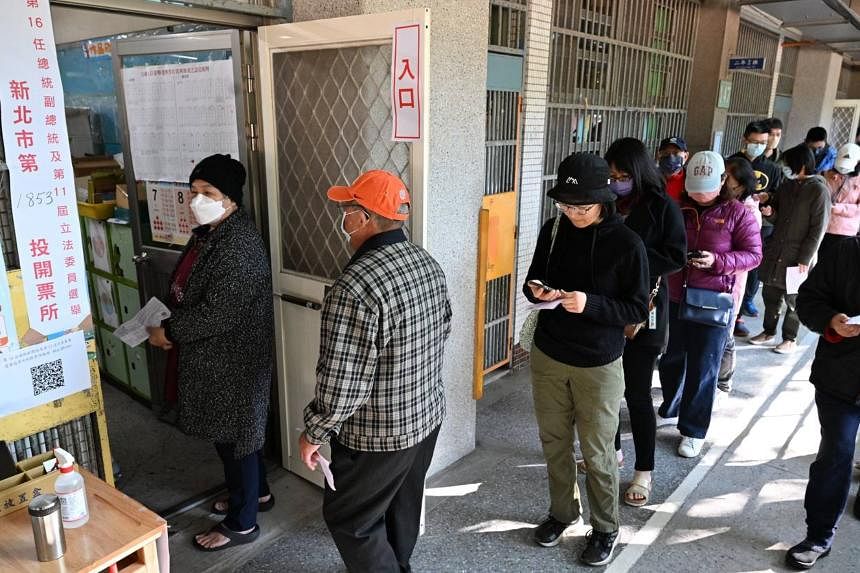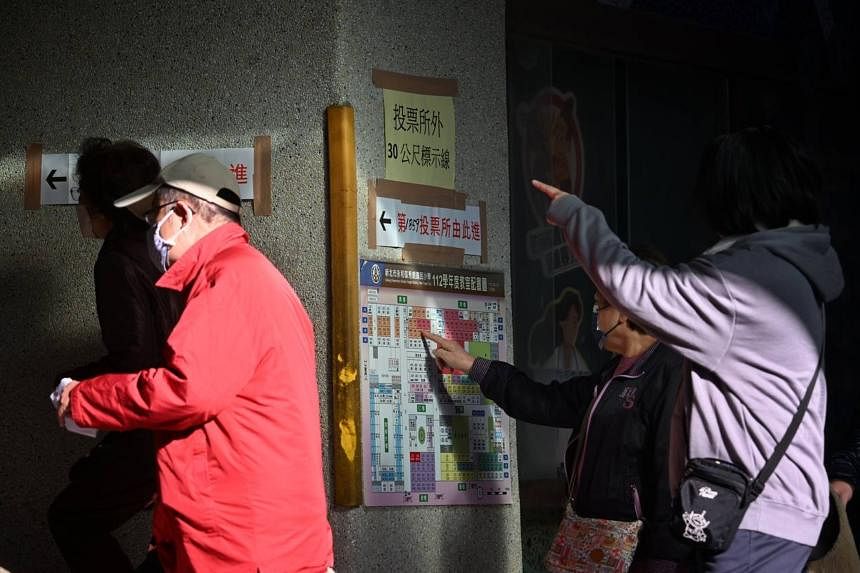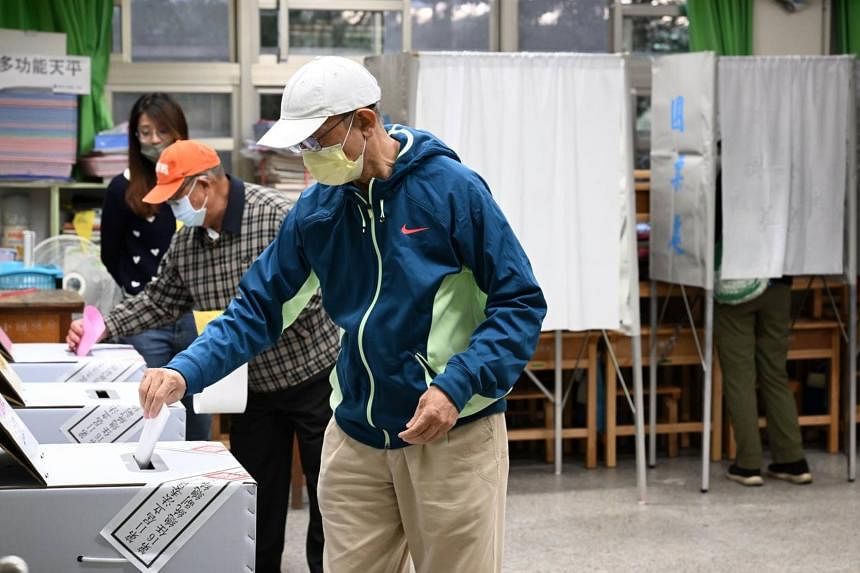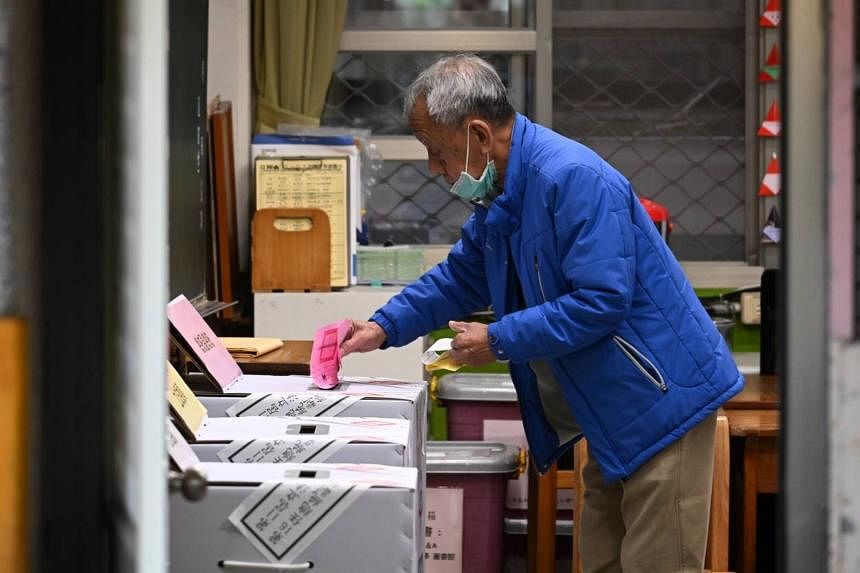TAIPEI – Taiwan heads to the polls on Jan 13 to vote for its next president and legislative representatives, in a critical election which will have far-reaching implications beyond the island’s shores amid heightened cross-strait tensions.
While Mr Lai Ching-te of the ruling Democratic Progressive Party (DPP) is seen as a front runner in the race, his opponents, Mr Hou Yu-ih of the Kuomintang (KMT) and Dr Ko Wen-je of the Taiwan People’s Party (TPP), have put up a strong fight for the island’s top job.
With the DPP’s majority in Taiwan’s 113-seat legislature also at stake, there are concerns of a hung Parliament, which could impede effective governance.
On the eve of the election, all three parties held massive rallies in a final bid to drum up support.
At a rally held in New Taipei city’s Banqiao Second Stadium on Jan 12, DPP supporters filled up the space so quickly that thousands more people were left to cheer on the candidates from the streets outside. According to the organisers, at least 200,000 people had showed up to support the party.
When vice-presidential candidate Hsiao Bi-khim emerged on stage, supporters started to shout dong suan, the unique Taiwanese election term that means “frozen garlic” in Mandarin but sounds like “to be elected” in the Minnan dialect.
President Tsai Ing-wen, who has served her maximum two-term limit, called on the crowd to ensure that the party stays in power.
Acknowledging that there has been some unhappiness among voters over how the party has handled certain policy areas, she said: “Maybe some of you think that Tsai Ing-wen has not done some things quickly enough, or done well enough. I want to tell you that as the President, I hope more than anyone that the nation can improve faster.
“But we are heading in the right direction. For the things that Tsai Ing-wen couldn’t finish in time, let Lai Ching-te and Hsiao Bi-khim continue fighting for Taiwan.”
The KMT rally was held concurrently at the Banqiao First Stadium just a six-minute walk away. The crowd inside and outside the stadium shouted cheers of “KMT, victory!” and waved flags in blue and red, the party’s colours. Organisers said that more than 200,000 supporters were present.
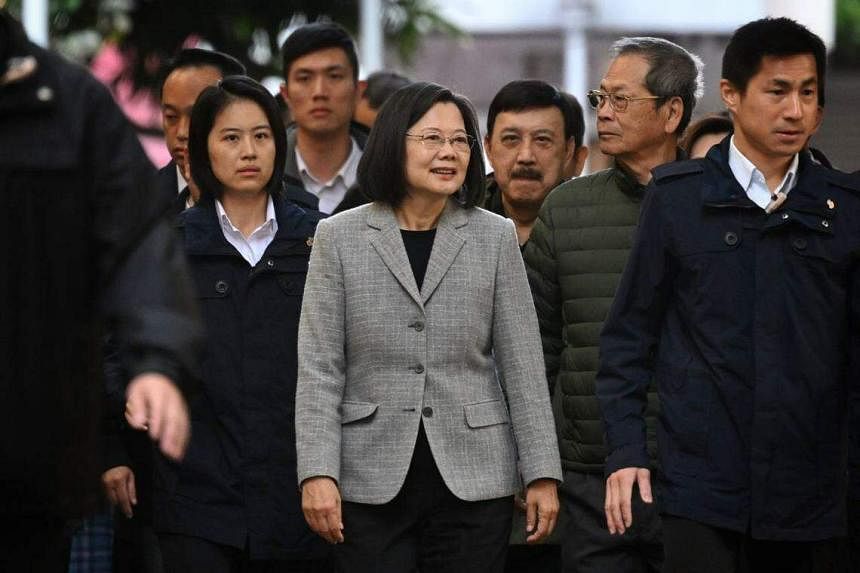
“Your vote tomorrow is a choice between war and peace,” former KMT legislative speaker Wang Jin-pyng told the crowd.
KMT’s vice-presidential candidate Jaw Shaw-kong made reference to a controversy over a comment by former Taiwan president and KMT party elder Ma Ying-jeou, that Taiwan has to trust Chinese leader Xi Jinping.
Mr Jaw said that Ms Tsai and Mr Lai were the ones who had taken the Chinese leader at his word, after Mr Xi had reportedly told United States President Joe Biden, when they met in the US in 2023, that he had no plans to attack Taiwan in 2027 or 2035.
“Who are the ones who trust Xi?” Mr Jaw asked rhetorically.
KMT supporter Liao Yi-tang, 54, who works in construction, said he was confident about Mr Hou’s chances. “He stands for peace and stability.”
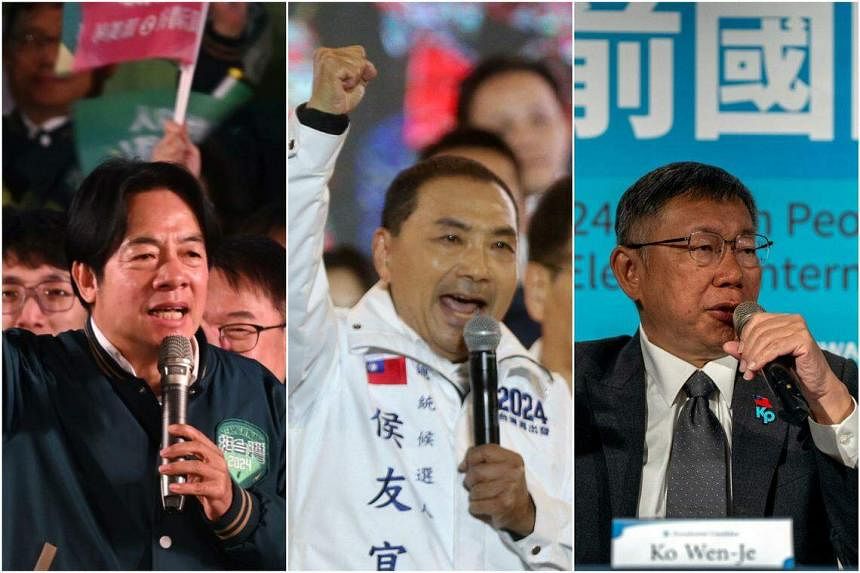
Meanwhile, the TPP rallied its supporters at an event held near Taipei’s Presidential Office.
Should Mr Lai win the presidential race, it would be the first time the same party has stayed in power for a third consecutive term since the introduction of direct presidential elections in 1996.
Analysts have noted how a victory for the independence-leaning DPP could worsen hostilities between Taipei and Beijing, which claims the island as its own territory to be reunified with the mainland one day.
In the lead-up to the polls, China has repeatedly denounced Mr Lai as a dangerous separatist and a “troublemaker”.
The DPP champions Taiwan’s separate identity and rejects China’s sovereignty claims, saying Taiwan’s future should be decided by its people.
When Ms Tsai was first elected president in 2016, Beijing cut off official communication with Taipei, citing her refusal to endorse the notion of a single Chinese nation.
“We already know that Beijing refused to work with Tsai Ing-wen and was deeply suspicious of her and her motives. If they couldn’t get along with Tsai, they won’t work with Lai,” said Dr Kharis Templeman, a Taiwan studies expert at Stanford University.
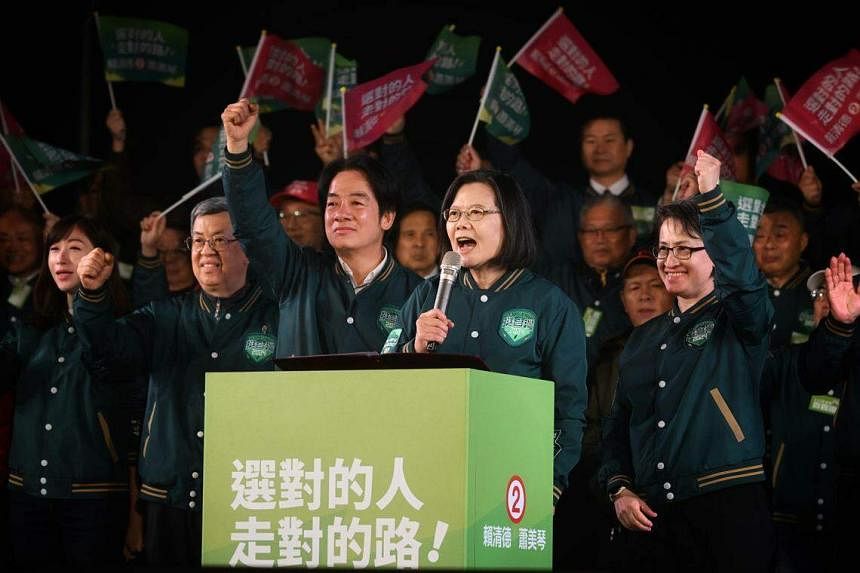
China has a particular distrust of Mr Lai due to some of his past rhetoric, in which he once described himself as a “practical worker for Taiwanese independence”. For Beijing, the declaration of de jure independence is a red line.
A leadership change, on the other hand, would pave the way for warmer cross-strait relations, argued the opposition parties.
Both the KMT and the TPP have pledged to restart cross-strait engagements, and said that this could be achieved beginning with low-level exchanges in such fields as education and tourism.
The two opposition parties have also tapped the frustration among some voters over the DPP’s handling of ongoing economic woes such as housing unaffordability and stagnant wages.
“There is a sense of fatigue with the ruling party after eight years in absolute power,” said Associate Professor Huang Jaw-nian, a political scientist at Taipei’s National Chengchi University.
Polls open at 8am on Jan 13 and close at 4pm, with ballot counting by hand beginning almost immediately. The results are expected to be known before the end of the night.
